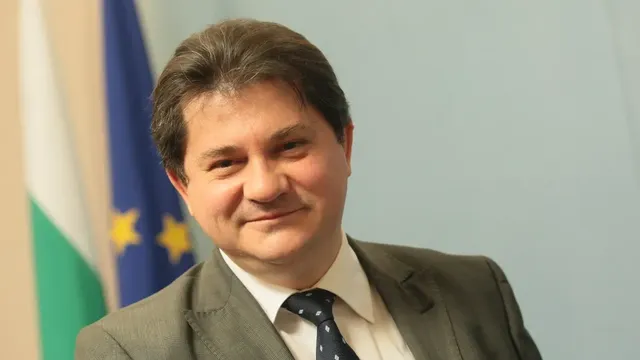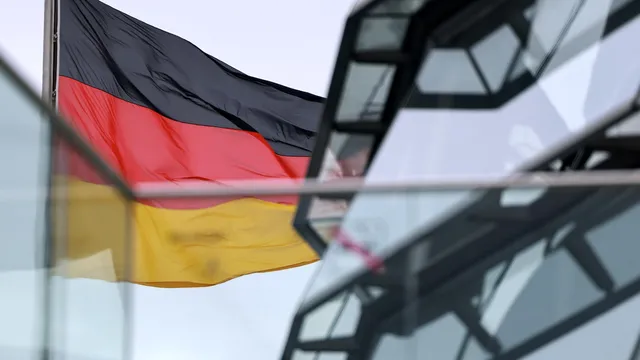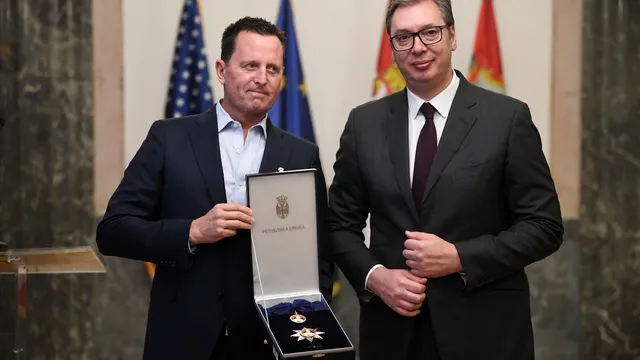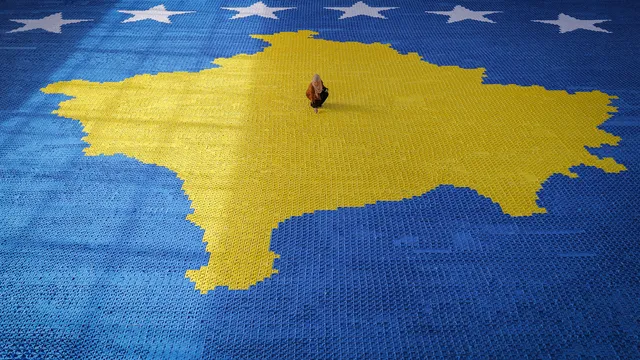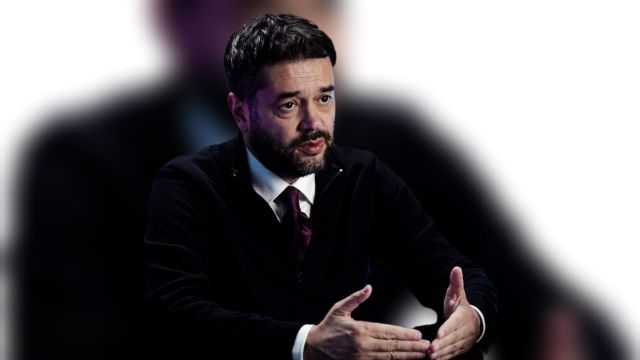In case Europe wasn't already on guard by now, the stunning leak of Signal conversations between JD Vance and other senior Trump administration officials is yet another sign that the Old Continent has a target on its back.
Trump's underlings gave Atlantic journalist Jeffrey Goldberg a front-row seat to planning strikes against the Houthis in Yemen. On the face of it, the attack on the Houthis had much more to do with the administration's policies to protect maritime commerce and contain Iran than with its concerns that Europe was taking advantage of U.S. defense spending and military forces. Vance, however, seemed determined to make his point.
"I think we are making a mistake," Vance wrote, adding that while only 3 percent of U.S. trade passes through the Suez Canal at 40 percent of European trade. "There is a real risk that the public will not understand this or why it is necessary," he added. "The biggest reason to do this is, as [Trump] said, to send a message."
Vance said that once again, the US was doing what Europe should be doing. The thesis is consistent with his previous arguments that the US pays too much for European security, and with the derision he showed towards European allies (specifically the UK and France) when he described them as "some random country that hasn't fought a war in 30 or 40 years". (Both countries fought in Afghanistan, and the UK fought alongside the US in Iraq).
It was during this policy discussion, Goldberg writes, that he became convinced he was reading the real Vance's lines, as well as those of Defense Secretary Pete Hegseth, National Security Adviser Michael Waltz, and Trump senior adviser Stephen Miller.
Vance then takes it one step further. He tacitly acknowledged the difference between his foreign policy and Trump's, saying the strike would undermine the president's European policy - a policy that was driven by Vance in his divisive speech at the Munich Security Conference, where he accused European leaders of "running away" from their own constituents.
"I'm not sure the president realises how inconsistent this is with his message to Europe at the moment," Vance wrote. "There is an additional risk that we will see a moderate to strong spike in oil prices. I am prepared to support the team consensus and keep these concerns to myself. But there is a strong case for delaying this for a month, doing the work of getting the message out about why this matters, establishing the state of the economy, etc."
The individuals interviewed also reflect the growing influence of the vice president in U.S. foreign policy circles. Vance named as his representative Andy Baker, his national security adviser who helped form the transition team at the Pentagon. Hegseth named Dan Caldwell, a leading proponent of "restraint" in the exercise of U.S. foreign power abroad to protect Europe and counter rivals like Russia, indicating the presence of Vance's team at high levels in the Pentagon as well.
At their core, the disagreements showed that Vance's views on foreign policy did not fully align with Trump's. Trump basically sees world politics as transactional, and optimists in Europe argue that he can force a positive outcome by forcing European countries to spend more on defense budgets. But Vance seems far more confrontational and principled in his antipathy toward the transatlantic alliance, and has attacked European leaders for espousing values that he says are not in line with the United States.
For this reason, Vance is even more dangerous for Europe. The head of European foreign policy, Kaya Kalas, accused Vance of "trying to pick a quarrel" with European allies. Another European diplomat said, "He's very dangerous for Europe... probably the most dangerous in the administration." A third said Vance is "obsessed" with the idea of driving a wedge between Europe and the United States.
Back in the chat, some participants tried to gently reassure Vance. Hegseth said the strike would promote "core" American values, including freedom of navigation, and establish deterrence. But he indicated that the strikes could wait if necessary. Waltz, a foreign policy traditionalist, said, "The United States is going to have to reopen those sea lanes." But he agreed that the administration is seeking to "compound the costs involved and dump them on the Europeans."
"If you think we should do it, let's do it. I just hate to bail out Europe again," Vance replied. Hegseth agreed: "I completely share your loathing of Europe. It's BAD." But, he added, "we're the only ones on the planet who can do the job."
Miller, the Trump confidant, effectively ended the conversation by pointing out that the president had been clear. "Green light, but we'll soon make clear to Egypt and Europe what we expect in return."
More broadly, the administration's policies toward Europe are coming into focus. Few have come out in support of NATO or Europe as a whole. In a podcast interview this weekend, senior Trump envoy Steve Whitkoff opined on the potential for Gulf economies to replace those of Europe. "This could be much bigger than Europe. Europe is dysfunctional today," he said.
Tucker Carlson, a host and another Trump confidant, agreed. "It would be good for the world because Europe is dying," he said. | BGNES
--------------
Andrew Roth is the global affairs correspondent for the newspaper. "The Guardian" in Washington
Signal chat reveals Trump administration's deep dislike of Europe
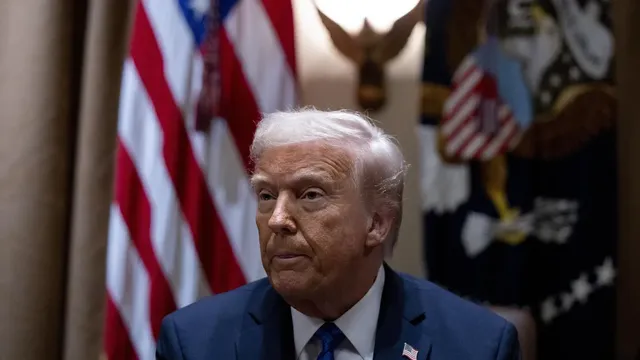
BGNES
In case Europe wasn't already on guard by now, the stunning leak of Signal conversations between JD Vance and other senior Trump administration officials is yet another sign that the Old Continent has a target on its back.


 Breaking news
Breaking news
 Europe
Europe
 Bulgaria
Bulgaria
